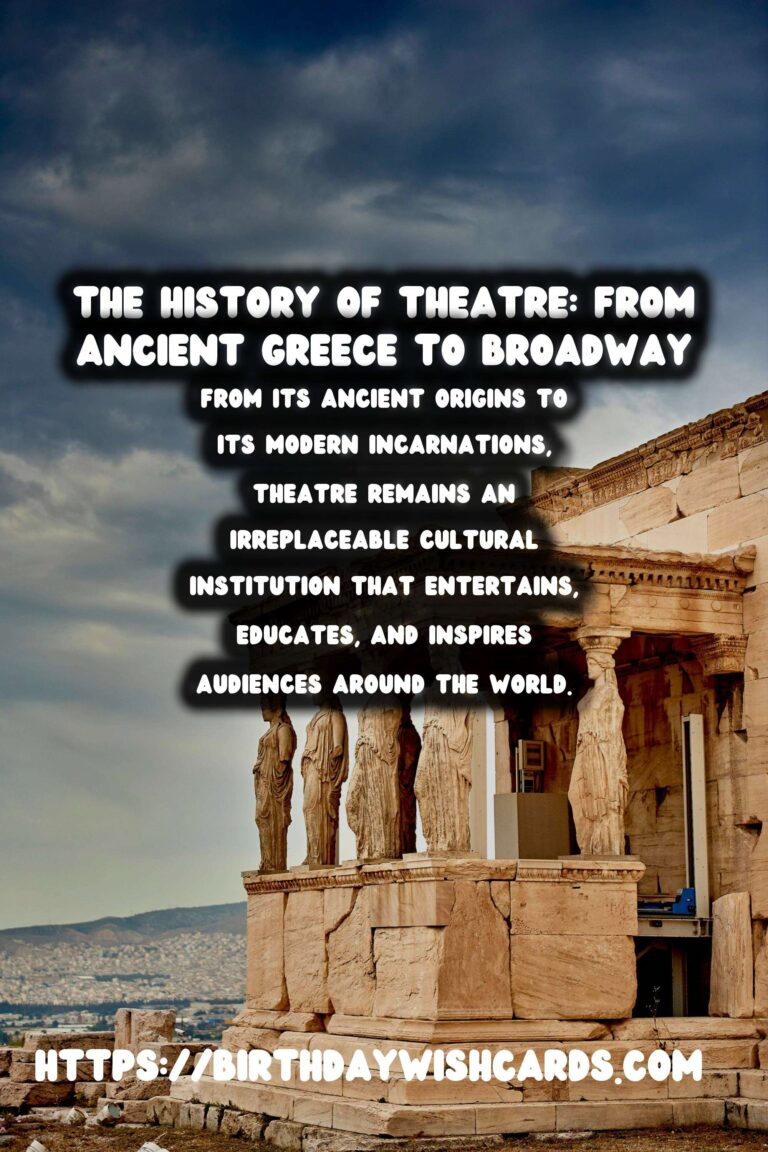
Introduction
The theatre is one of the most profound expressions of cultural and social evolution. From the ancient amphitheaters of Greece to the vibrant streets of Broadway, theatre has been a dynamic reflection of human experience, artistic innovation, and societal change.
Ancient Beginnings: Greece and Rome
The roots of Western theatre date back to Ancient Greece in the 6th century BCE. Greek theatre originated in religious festivals dedicated to Dionysus, the god of wine and fertility. These early performances were held in large, open-air amphitheaters and consisted primarily of tragedies and comedies.
Famous playwrights of the era included Aeschylus, known as the father of tragedy, Sophocles, and Euripides. Their works often explored complex themes such as fate, love, and hubris. Roman theatre, which inherited much from Greek traditions, further expanded the art form by building more extravagant venues and emphasizing spectacle through mimes and pantomimes.
The Middle Ages to the Renaissance
During the Middle Ages, theatre became intertwined with the Church and was often used as a tool for teaching biblical stories. Miracle plays, mystery plays, and morality plays formed the backbone of this era’s theatrical presentations.
The Renaissance, however, marked a significant shift. Theatre broke away from religious confines and embraced humanism, exploring themes beyond the ecclesiastical. Italy led the way with the development of Commedia dell’arte, a form of improvisational theatre that focused on stock characters and plots.
In England, the Elizabethan era was a golden age for theatre, with playwrights like William Shakespeare and Christopher Marlowe leading the renaissance of drama. Their works, filled with complex characters and intricate plots, were performed at places like The Globe Theatre, bringing theatre to the mass public.
The Evolution in the Modern Era
As society progressed into the 18th and 19th centuries, theatre continued to evolve. The Romantic era introduced more personal storytelling, focusing on emotion and individualism. Meanwhile, realism and naturalism emerged as dominant styles in the later 19th century, seeking to portray life accurately and objectively.
The 20th century witnessed an explosion of theatrical innovation, with movements such as Expressionism and Absurdism pushing the boundaries of traditional narrative and structure. Notable figures like Bertolt Brecht introduced epic theatre, aimed at prompting social change and encouraging audiences to think critically about societal issues.
The Rise of Broadway and Globalization
Broadway emerged as a beacon of commercial theatre in the early 20th century. Located in the heart of New York City, Broadway became synonymous with glamour and high-quality productions. Musicals like ‘Show Boat’ and ‘Oklahoma!’ set the stage for a new form of storytelling that combined drama, music, and choreography.
In today’s globalized world, theatre continues to thrive and diversify. Technological advancements have enhanced production quality, while issues of representation and inclusivity are reshaping narratives. Broadway remains influential, but many other countries have developed vibrant theatre scenes, showcasing a myriad of stories and styles.
Conclusion
The history of theatre is a testament to humanity’s enduring desire to tell stories, explore emotions, and reflect societal changes. From its ancient origins to its modern incarnations, theatre remains an irreplaceable cultural institution that entertains, educates, and inspires audiences around the world.
The theatre is one of the most profound expressions of cultural and social evolution. From its ancient origins to its modern incarnations, theatre remains an irreplaceable cultural institution that entertains, educates, and inspires audiences around the world. 
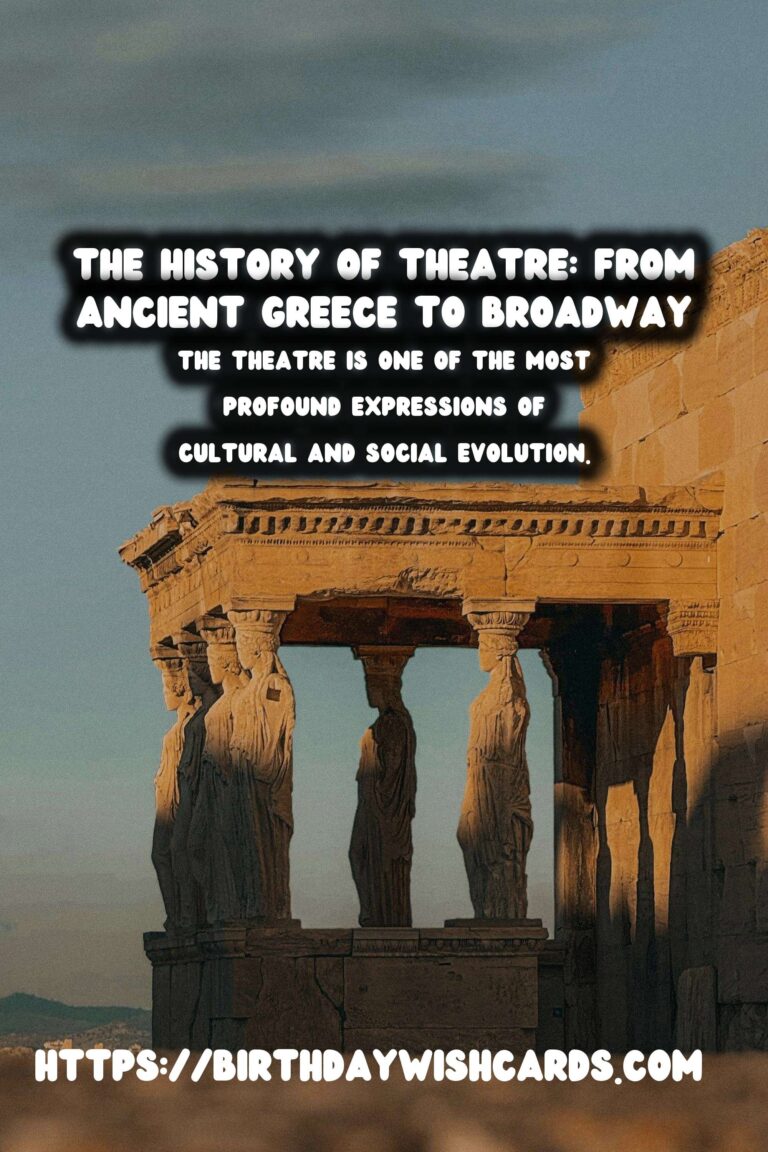
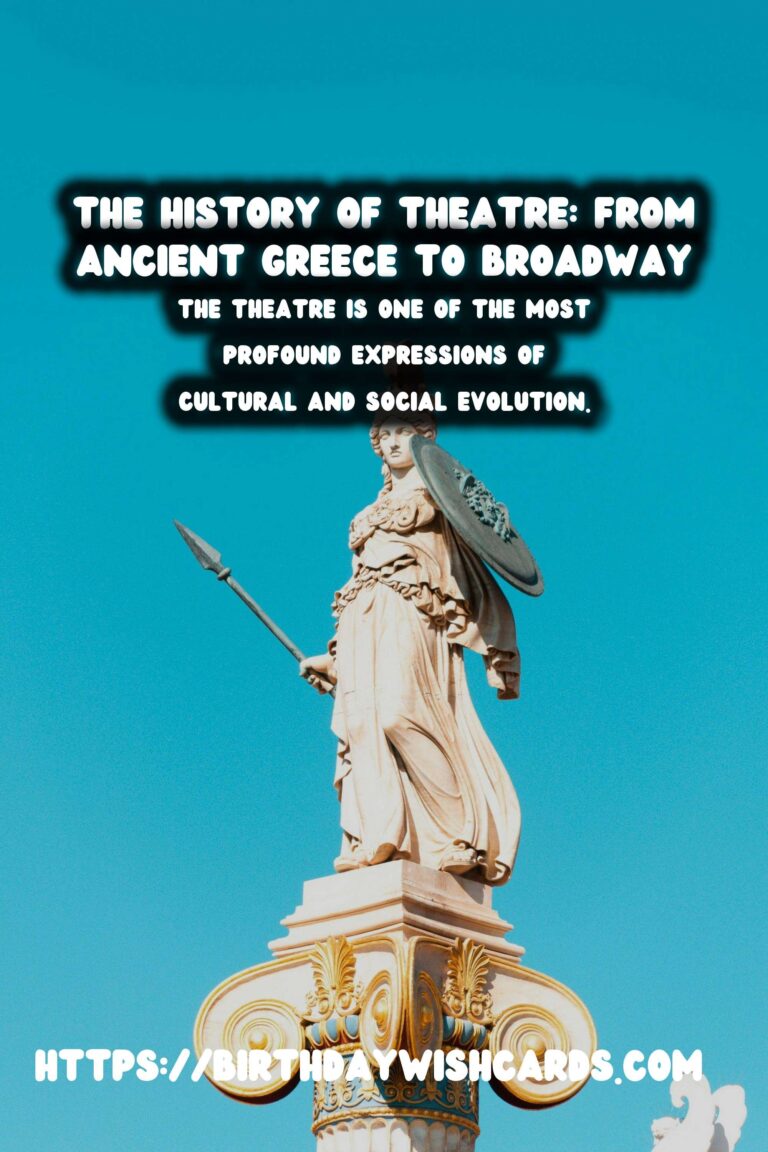
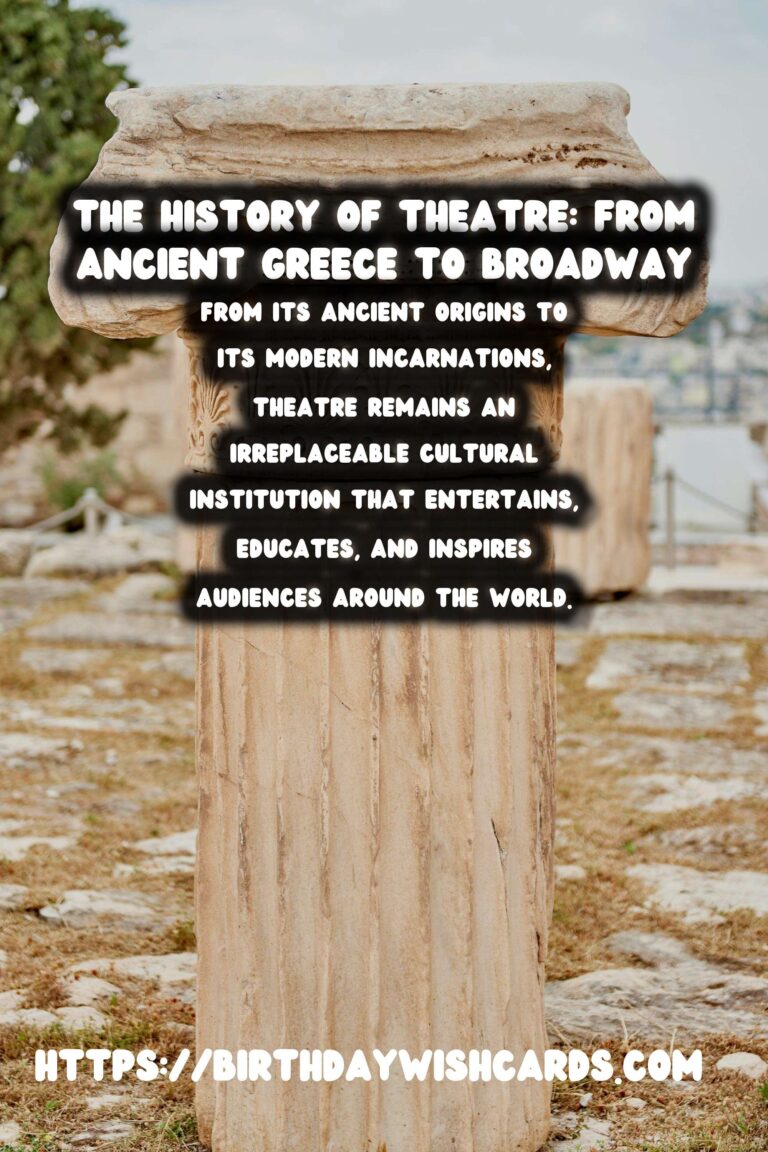
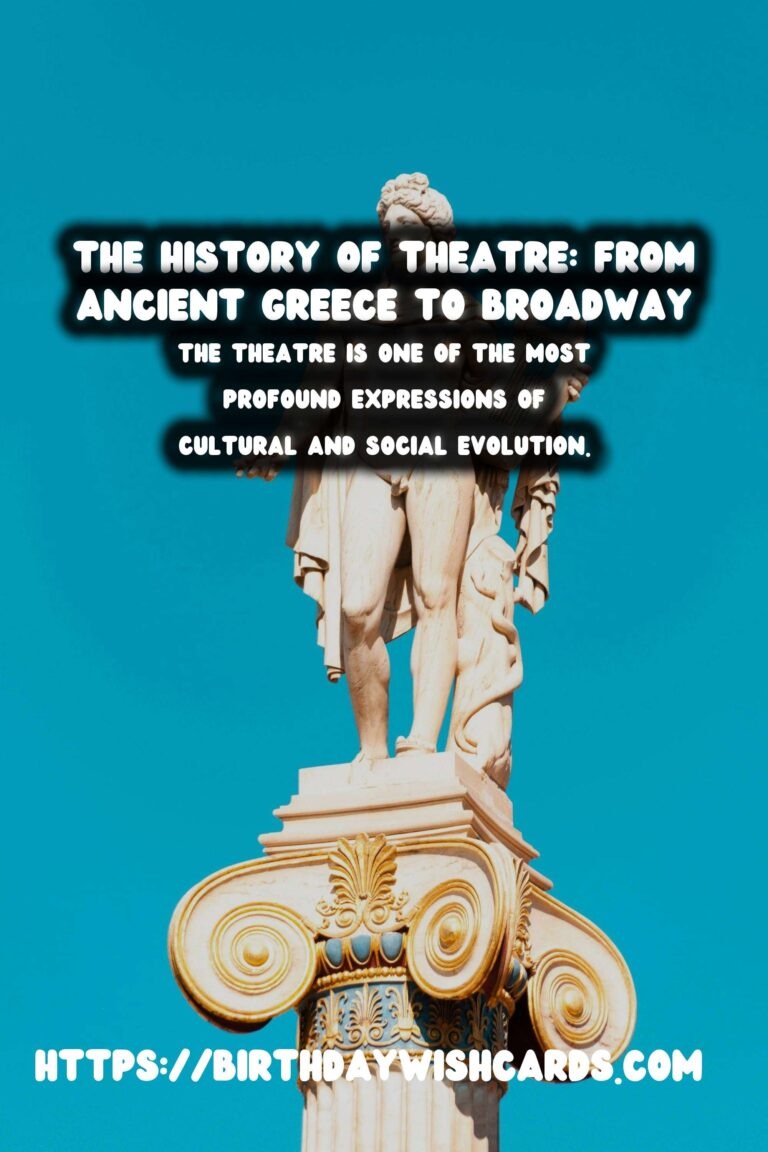
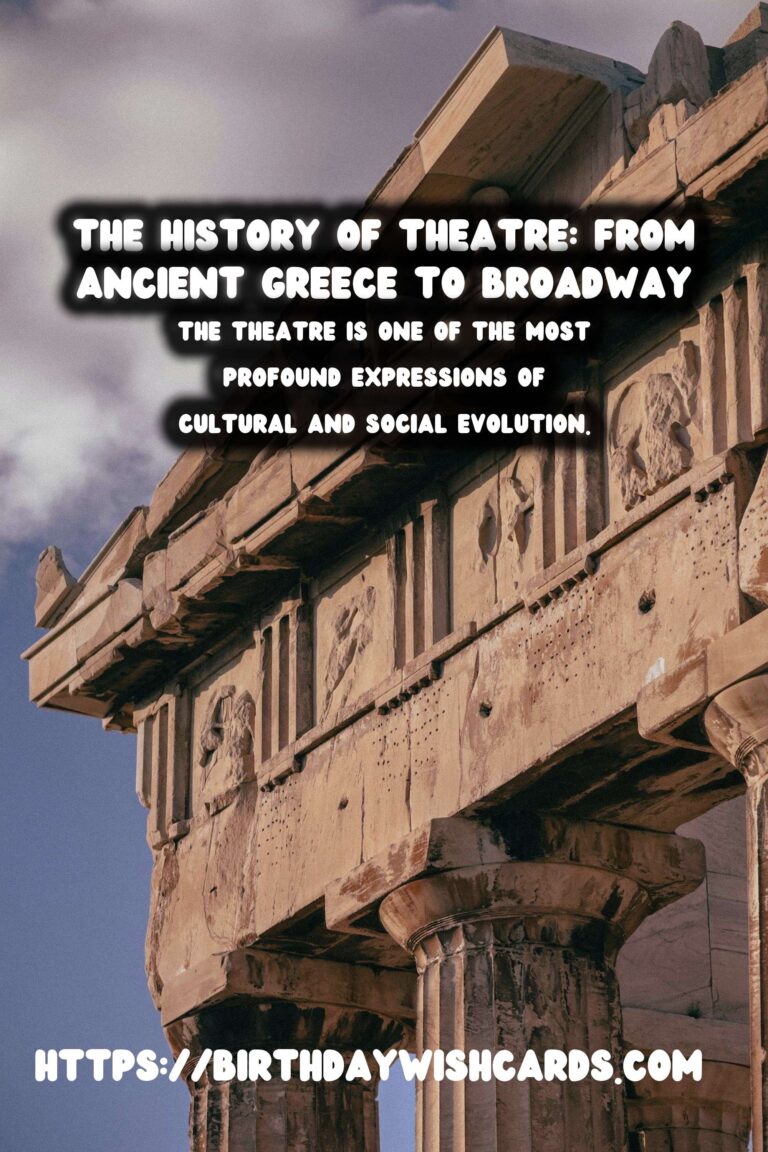
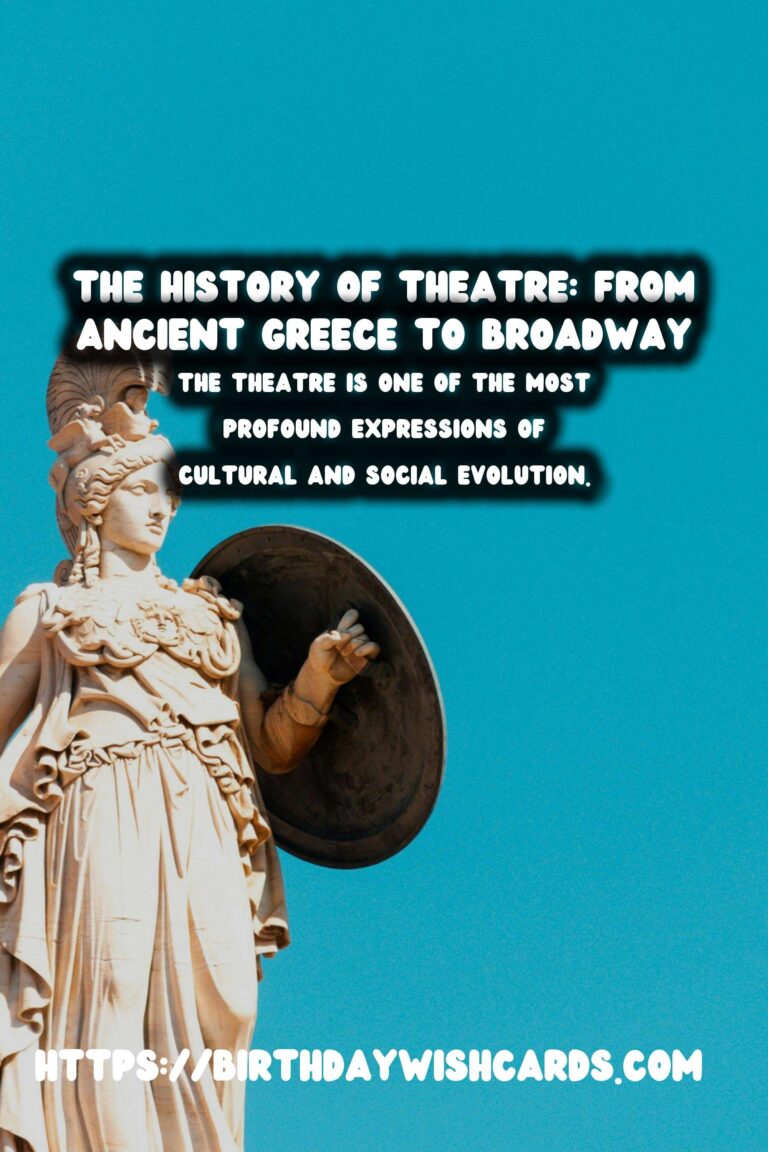
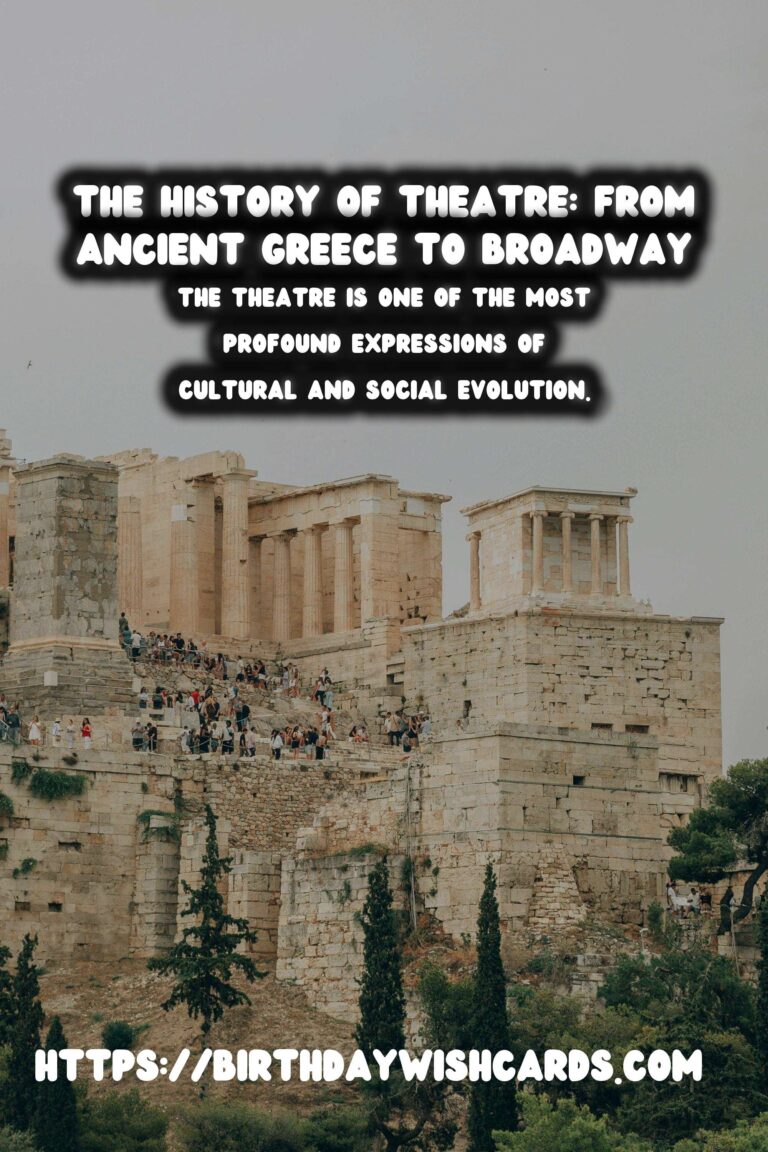
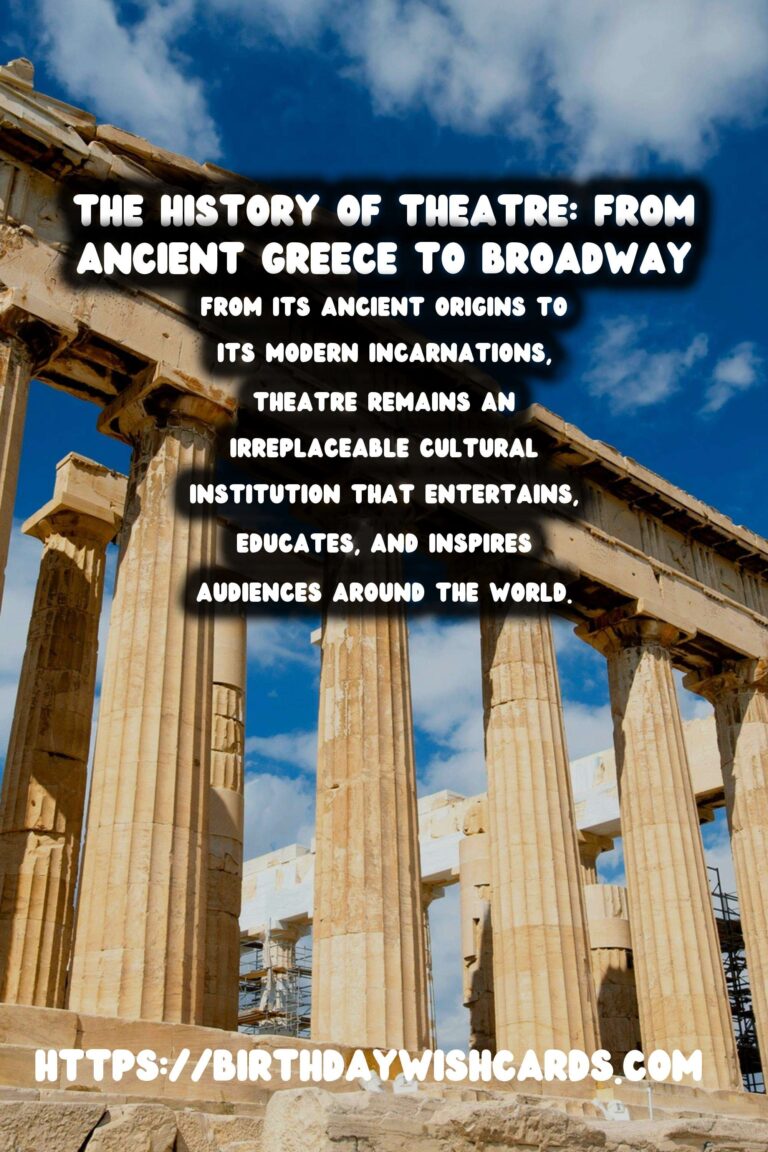
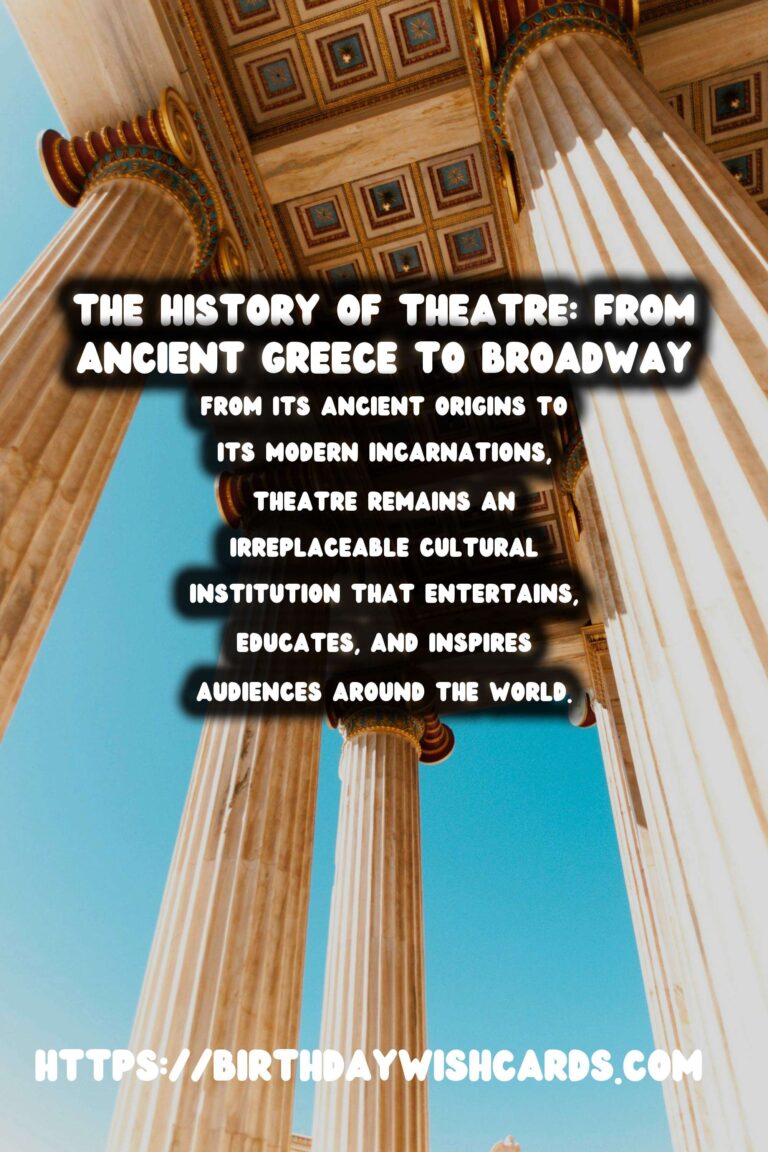
#theatre #Broadway




